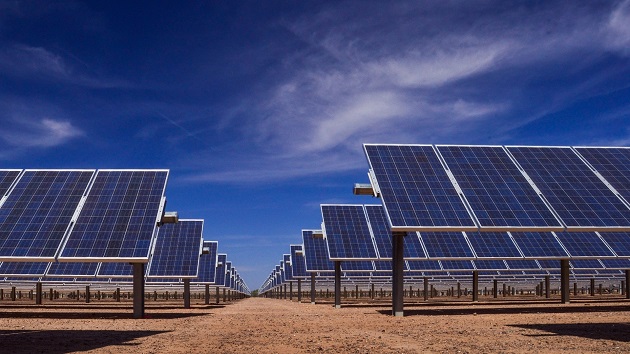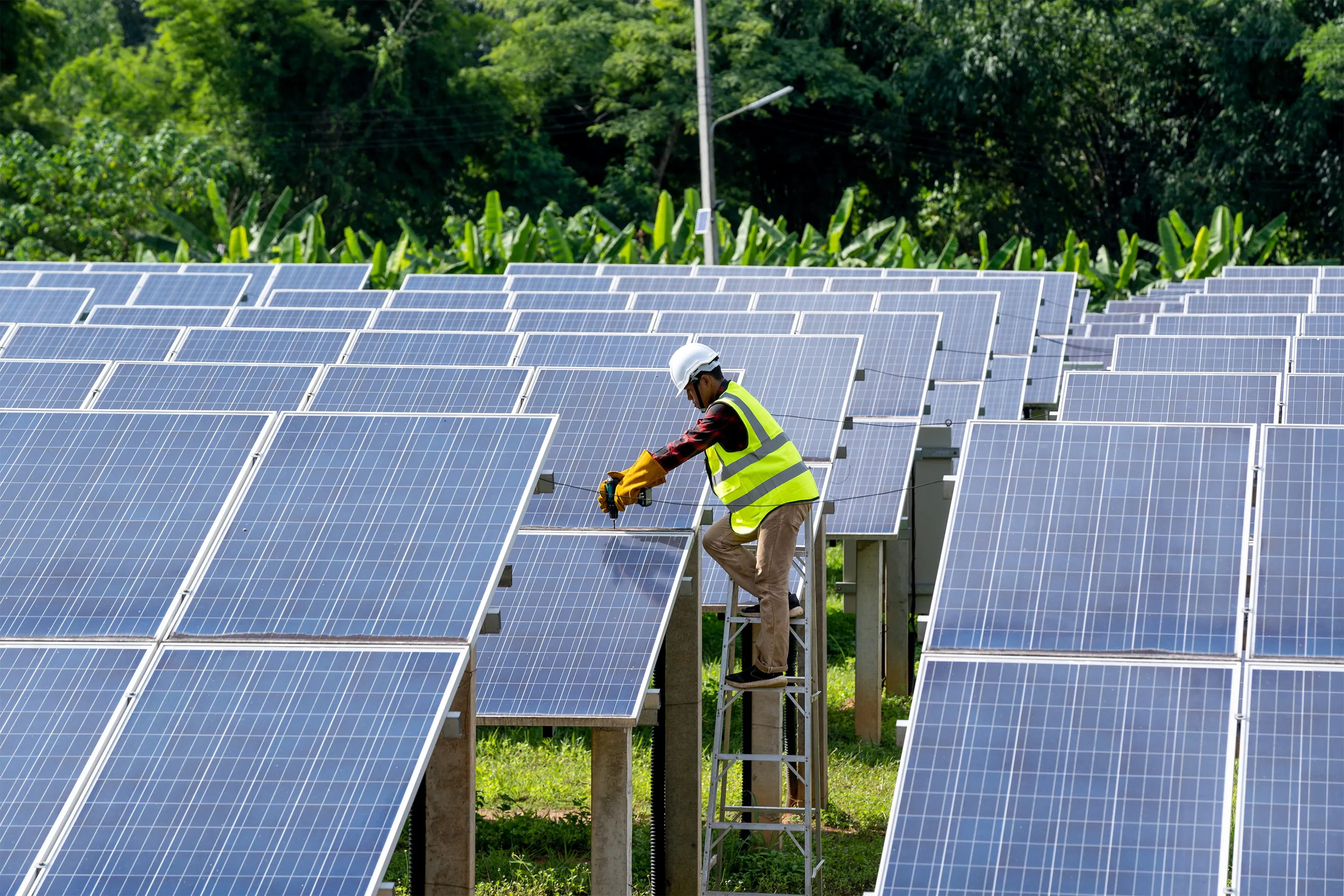Commercial Solar Panels Virginia Fundamentals Explained
Commercial Solar Panels Virginia Fundamentals Explained
Blog Article
Solar Energy Installers Virginia: Lumina Solar Focuses On Supplying Advanced Photovoltaic Solutions For Homes And Businesses
History and Founding
Have you ever wondered how a photovoltaic panel business springs from a mere stimulate of motivation into a powerhouse of renewable energy? It often starts with a vision-- one sustained by a mix of innovation, determination, and a pinch of serendipity. The journey of many solar companies mirrors the evolution of the innovation itself: from large, ineffective panels to sleek, high-efficiency marvels utilizing the sun's bounty.
The Early Days
In the late 20th century, when solar power was still a niche concept, leaders planted seeds for what would end up being an international motion. Envision a little workshop filled with curious engineers, tirelessly try out solar batteries. Their enthusiasm was palpable, typically check here driven by a desire to combat climate change and minimize dependence on nonrenewable fuel sources.
One such anecdote has to do with a creator who, influenced by an outdoor camping trip, recognized that even in remote locations, the sun might power vital gadgets. This simple observation sparked a company's objective to equalize access to clean energy.
Founding Principles

- Innovation: Continuously pushing the borders of solar innovation to enhance performance and sturdiness.
- Sustainability: Dedicating to environmentally friendly production and decreasing carbon footprints.
- Availability: Making renewable resource options economical and practical for everyday users.
Milestones in Development
| Year | Key Occasion |
|---|---|
| 1985 | Company founded in a small garage, concentrating on research study and development. |
| 1995 | First commercial photovoltaic panel product introduced, gaining regional attention. |
| 2005 | Expanded to global markets, embracing worldwide sustainable energy goals. |
| 2015 | Presented advanced photovoltaic panel technology with boosted energy conversion. |
Isn't it interesting how these incremental actions, frequently overlooked, form the energy landscape today? The solar panel business story is not simply about innovation; it's about a ruthless mission for a brighter, cleaner future.

Innovations in Photovoltaic Panel Technologies
Ever seen how some solar panels shine brighter and last longer? It's not magic; it's the science of photovoltaic effectiveness. Modern solar panel business invest greatly in innovations like bifacial cells, which catch sunlight from both sides, increasing energy harvest without expanding roofing system space. Have you ever questioned why some panels perform much better on cloudy days? That's due to advances in thin-film solar technology, which flourishes under diffused light conditions.
Item Variations Tailored to Unique Requirements
One size never fits all. Photovoltaic panel providers now provide:
- Monocrystalline panels for optimum performance and sleek visual appeals, perfect for space-constrained roofs.
- Polycrystalline panels, which offer a cost-effective alternative without sacrificing excessive output.
- Building-integrated photovoltaics (BIPV), combining solar tech flawlessly into architectural components like windows and facades.
Selecting the ideal product isn't almost upfront expense; it's about matching your environment, energy objectives, and long-lasting savings. Homes shaded by trees need panels that excel in low-light situations, something lots of ignore till energy bills climb all of a sudden.
Technical Tips for Optimal Choice
- Evaluate the temperature coefficient-- lower worths imply panels lose less efficiency on hot days.
- Look for panels with improved anti-reflective finishes to optimize light absorption.
- Consider the panel's warranty not simply for problems, however for ensured power output over decades.
- Don't undervalue the significance of the inverter technology coupled with the panels; it can make or break your system's performance.
Beyond Panels: Emerging Patterns
Envision photovoltaic panels that adjust their angle instantly to go after the sun-- tracking systems are becoming more available, increasing yield considerably. Or solar tiles that blend invisibly into your roofline, transforming your home into a silent, self-dependent power generator. These innovations are reshaping what a solar panel company provides-- not just items, however incorporated energy services.
Market Existence and Global Operations
Ever question why some solar panel companies seem to grow up in every corner of the globe while others barely make a ripple? The difference lies not just in technology however in mastering the art of navigating varied markets. Broadening globally is like planting seeds in various environments-- you must comprehend each environment's distinct conditions to thrive.
Take, for example, the elaborate dance of logistics and supply chain management. Delivering panels midway throughout the world isn't just about range; it's about timing, customs, tariffs, and adjusting to local demand fluctuations. A company with robust worldwide operations expects these variables, guaranteeing panels show up on schedule without inflating expenses. This foresight is no little accomplishment and typically separates market leaders from fans.
Key Methods for Expanding Market Presence
- Localized production: Establishing production hubs near target markets reduces shipping hold-ups and import intricacies.
- Strategic partnerships: Working together with local firms speeds up market penetration and builds trust.
- Adaptive product design: Tailoring solar panel tech to weather, sun intensity, and infrastructure nuances improves performance and approval.
What about the human element? Photovoltaic panel companies operating globally must reconcile cultural distinctions and regulatory subtleties without losing sight of their core objective. What works in a sun-drenched desert might falter in a humid coastal area. Sometimes, the most ingenious service is just listening-- absorbing local insights to improve innovation and approach.
Experts frequently encourage a phased rollout rather than a shotgun expansion. Why run the risk of overextension when measured growth develops sustainable momentum? Scaling carefully indicates balancing aspiration with functional durability - Best Solar Panel Company Virginia. After all, in the race for sustainable energy supremacy, patience can be as important as speed
Environmental Effect and Sustainability Practices
When solar panels first emerged, numerous assumed they carried no ecological luggage. However, the truth is more nuanced. The production of photovoltaic cells involves unusual earth metals and energy-intensive procedures, which can leave a large carbon footprint before the panels even reach rooftops. Yet, the real environmental cost depends heavily on the sustainability practices used by the solar panel company throughout the lifecycle of their items.
How often do we pause to consider what happens to solar panels at the end of their beneficial life? Unlike batteries or electronic devices, photovoltaic panels can last 25-30 years, however disposal and recycling paths remain underdeveloped in lots of areas. A company committed to decreasing ecological damage will have a robust prepare for recycling photovoltaic products, restoring valuable silicon, glass, and metals to prevent land fill accumulation.
Secret Sustainability Techniques
- Making use of low-impact manufacturing methods that minimize water and energy usage.
- Executing closed-loop systems to recycle production waste back into brand-new panels.
- Taking part in transparent supply chain audits to make sure ethical sourcing of basic materials.
- Creating panels for much easier disassembly to help future recycling efforts.
It deserves noting that some solar companies have actually pioneered ingenious methods, such as incorporating naturally degradable components or utilizing less poisonous chemicals during fabrication. This not just lowers environmental pressure but also sets a precedent for the market. The question stays: can the solar market genuinely pivot towards a circular economy model without compromising effectiveness or cost?
Expert Tips for Evaluating Sustainability
- Ask about the business's dedication to carbon-neutral production and whether they balance out emissions.
- Investigate if they partner with certified recycling centers committed to photovoltaic panel waste.
- Search for transparency reports detailing environmental effects and sustainability objectives.
- Consider the longevity and warranty of panels as an indirect measure of resource effectiveness.
In the end, deciding for solar power ought to mean more than just slashing electrical energy bills; it has to do with supporting a future where energy is harvested properly and waste is thoughtfully handled. Solar panel companies that welcome this approach not just brighten homes however likewise cast a brighter light on sustainable innovation.
Report this page